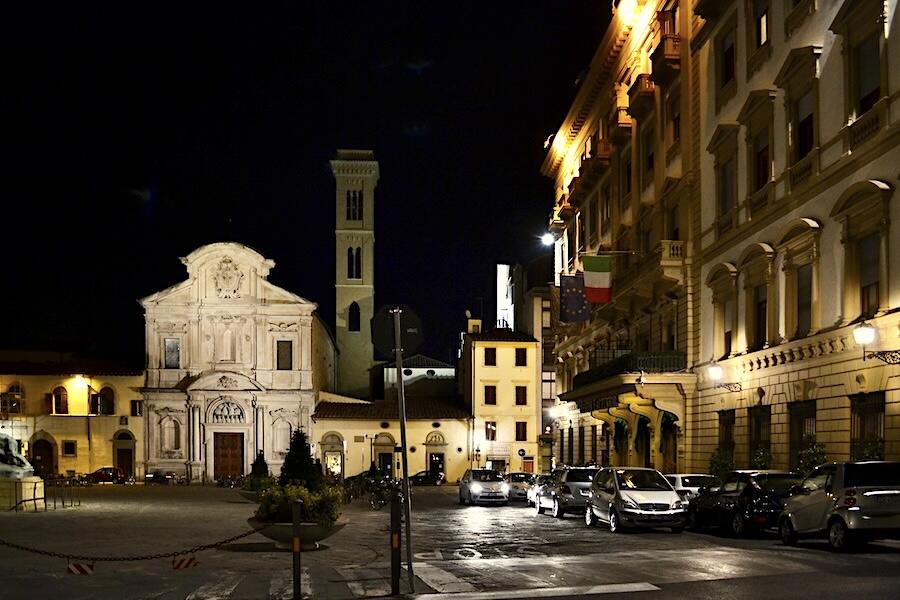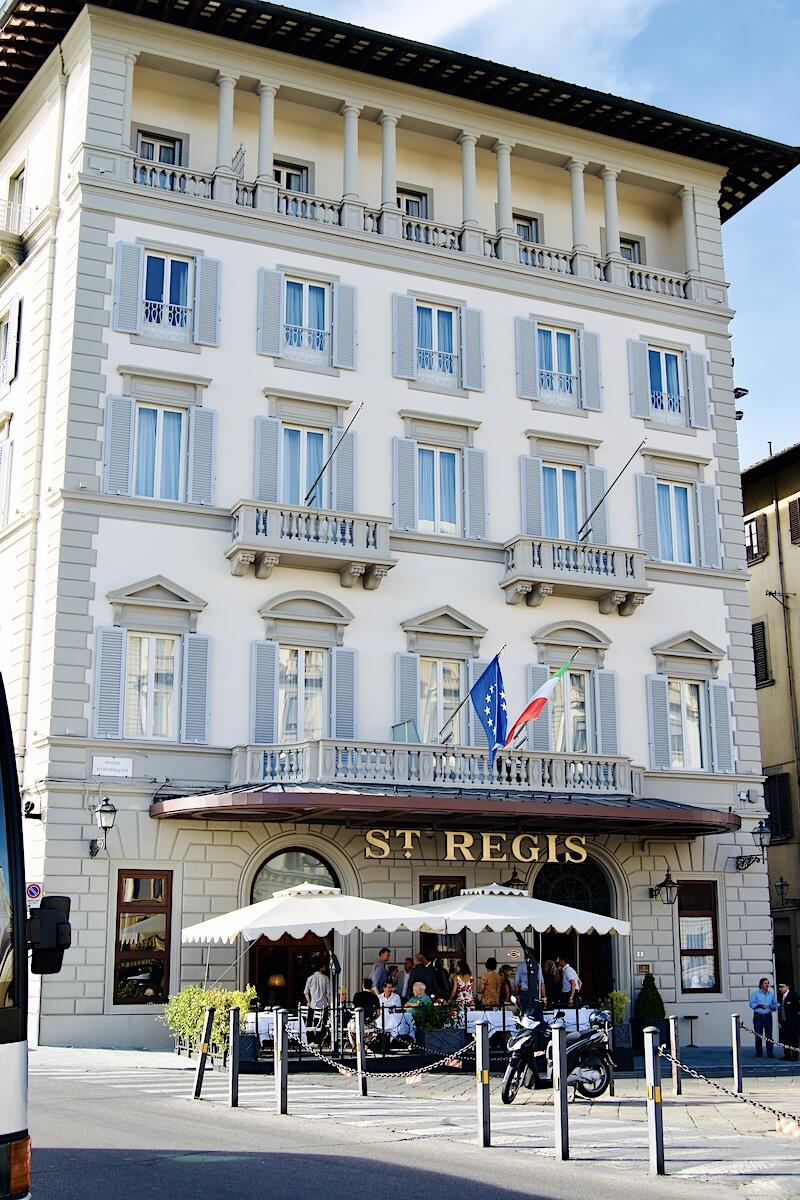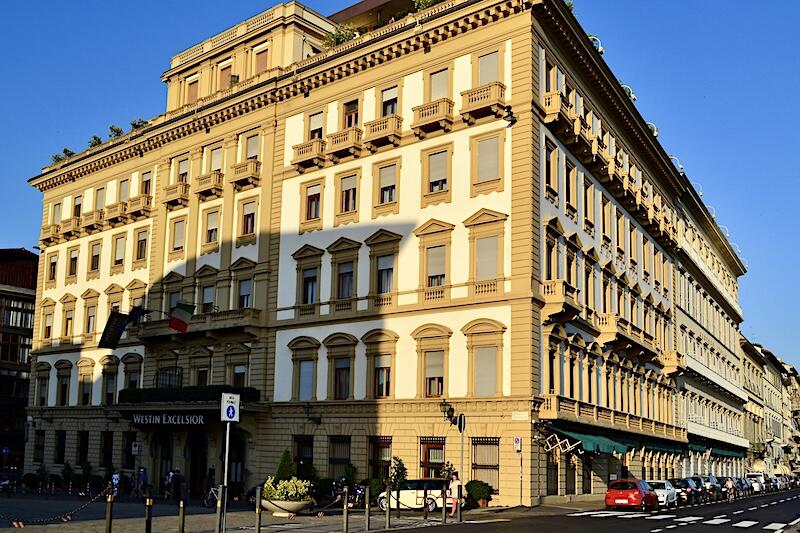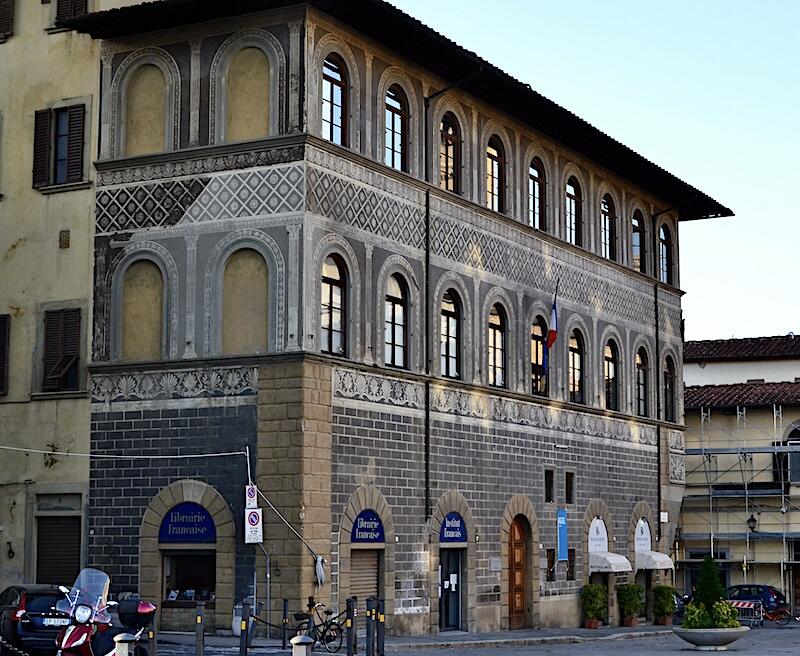Piazza Ognissanti
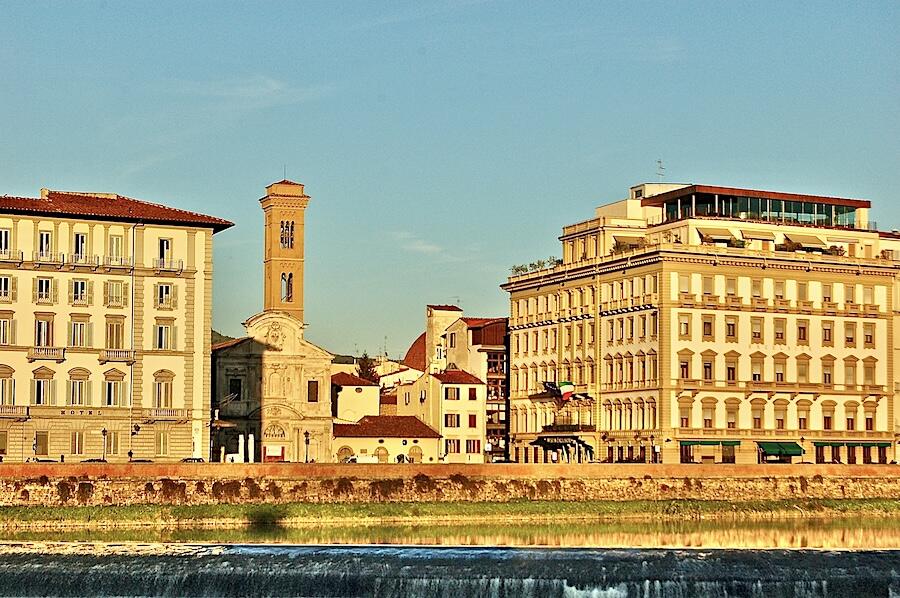
Situated on the northern side of the River Arno lies Piazza Ognissanti, an often overlooked but historically rich and vibrant square.
Historical Core
The heart of the Piazza is the Chiesa di Ognissanti (All Saints Church). This church, founded in the 13th century by the Benedectine Umiliati order, witnessed Baroque-style makeovers in the subsequent centuries. A treasure trove for art enthusiasts, inside one can find works by renowned artists like Botticelli and Ghirlandaio. Intriguingly, both of these artists found their final resting place within its walls (or floor, to be more exact!).
This area is also known as the birthplace (and in the church, final resting place) of Amerigo Vespucci, the famed explorer after whom the Americas are named, whose family was prominent in the area (the contemporary bridge to the west of the square is also named after him - the Ponte Amerigo Vespucci).
The Wool Trade: Threads of History
The historical significance of Piazza Ognissanti is closely intertwined with the wool trade. The aforementioned Umiliati played a key role in this. They were instrumental in pioneering advanced wool processing techniques in Florence during the Middle Ages. The order set up wool dying workshops around the Piazza which had easy access to the river and the water needed in the process. This trade was one of the primary drivers of Florence's economic prosperity during the Renaissance.
It's not just the Church of Ognissanti that bears testament to the importance of the wool trade here. The very buildings surrounding the square were homes and workplaces for merchants, traders, and craftsmen associated with the industry. Their affluence, derived from the thriving wool trade, led to patronage of the arts, fueling the Renaissance movement further.
Over time, as the wool trade shifted and modernized, the square evolved too. The wool workshops of yore gave way to grand buildings, luxury hotels, and modern establishments, but the architectural cues and the stories etched in the very stones of the Piazza whisper tales of its woolen past.
Events and Traditions
Piazza Ognissanti host some local events, but is generally a more quiet than most of the centers other piazzas. The "Fiera di Ognissanti" is an anticipated annual event. Held on November 1st to coincide with All Saints' Day, this market attracts visitors with its display of crafts, antiques, and traditional Tuscan delicacies. There is also a collectibles and handicrafts market on the second Saturday of every month. There is usually something happening in the square during Notte Bianca also, and other ad hoc events.
Piazza Ognissanti Today
Today the square is home to two of the larger and more luxurious hotels in Florence, The St. Regis Florence, and The Westin Excelsior, Firenze. The Institut français Florence is on the square in the Palazzo Lenzi, and you can frequently hear French spoken if you linger in the square (unfortunately, this piazza has little public seating, there are a few planters that double as benches, or you will have to have a drink or snack at one of the hotels to be able to sit down comfortably). The center of the square also features a contemporary bronze sculpture of Hercules Strangling the Nemean Lion, by Romano Romanelli, and placed here in 1937.Here is a quirky video of a nice little walk around the area during sunset:
allowfullscreen>
Here is the location of Piazza Ognissanti on the map:
Comments:
Last update:
What's New?
-
Florence Parking Guide & Map
Feb 23, 2026
-

Top Ten Luxury Hotels in Florence
Feb 9, 2026
-

Piazza San Marco
Jan 5, 2026
-
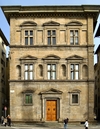
Piazza Santa Trìnita
Dec 2, 2025
-

Ceramics Fair (Fiera della Ceramica)
Oct 1, 2025
Top experiences in and around Florence:
Some links to external websites may be affiliate links (hotel bookings, guide books, activities, etc.). Using these services helps to support our efforts here with no additional costs to the user (you!).
